We believe in providing you with a positive and caring dental environment. Our friendly staff and dentists are ready to help you keep your health and your smile in total harmony. Learn more about us here.
Make An Appointment
We are currently accepting new patients. Contact us today to learn more or call 905-354-9991 to schedule an appointment. We look forward to hearing from you!
Working Hours
-
Monday10am-6pm
-
Tuesday10am-4pm
-
Wednesday9am-6pm
-
ThursdayClosed
-
Friday9am-4pm
-
SaturdayBy Appointment Only
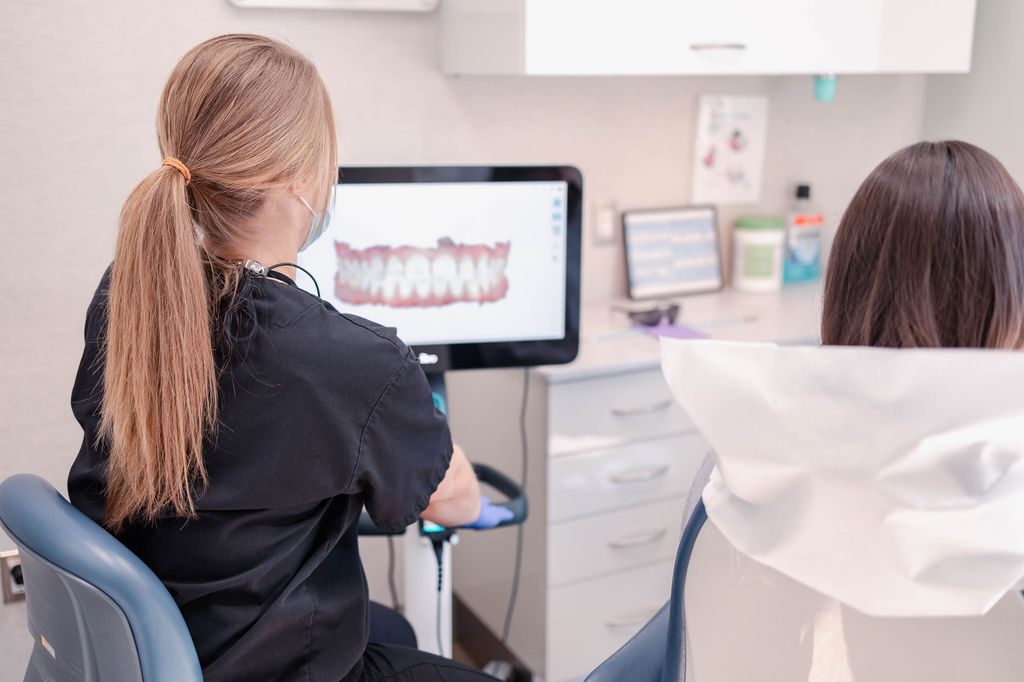
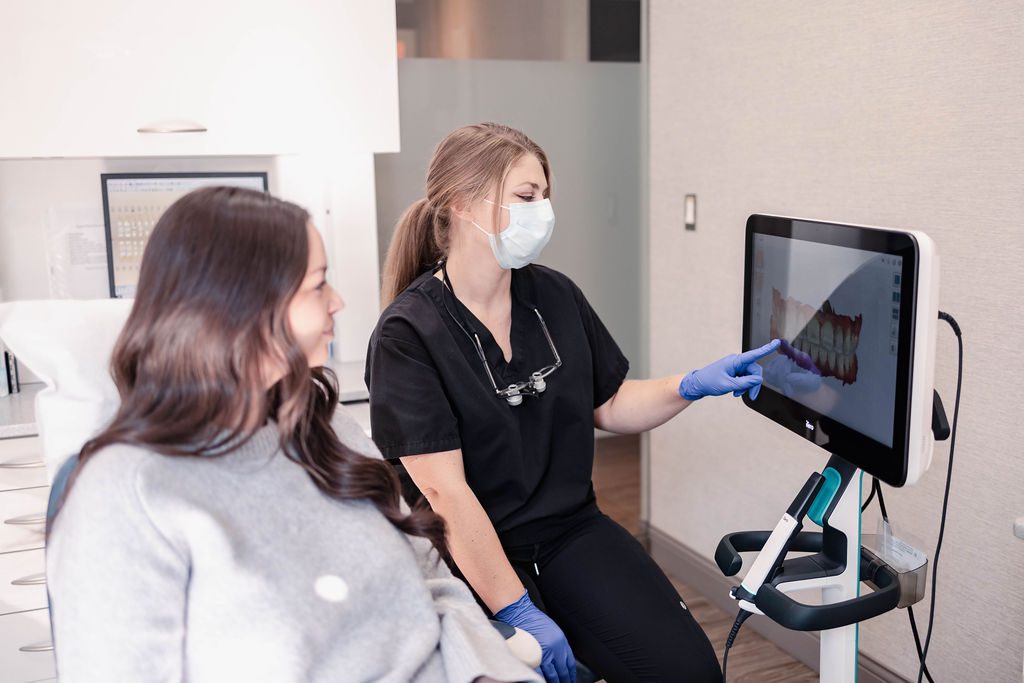
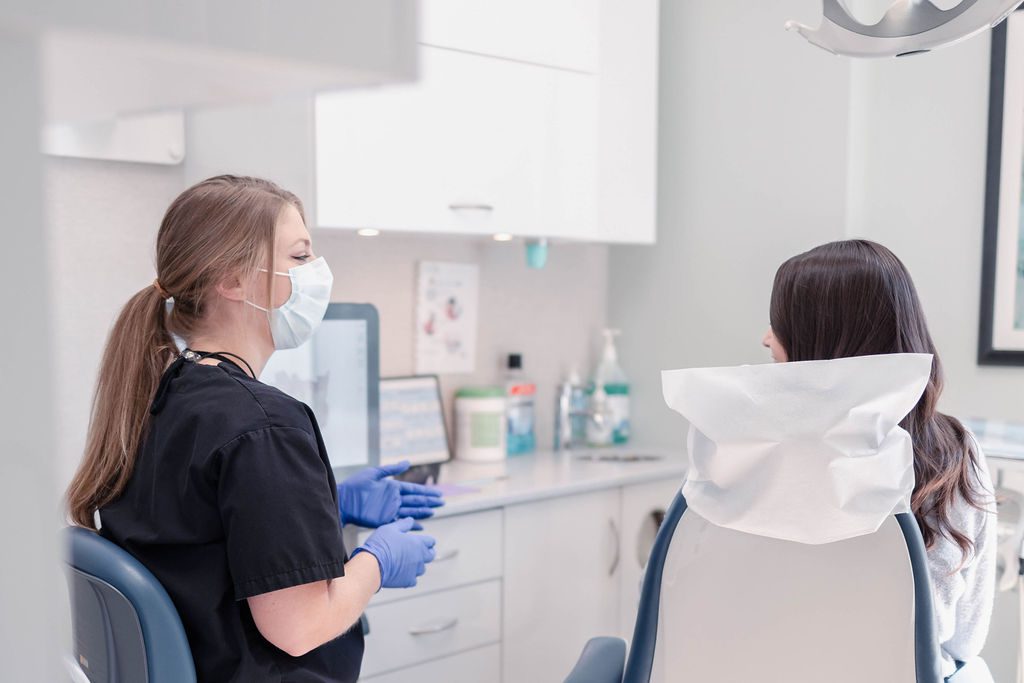
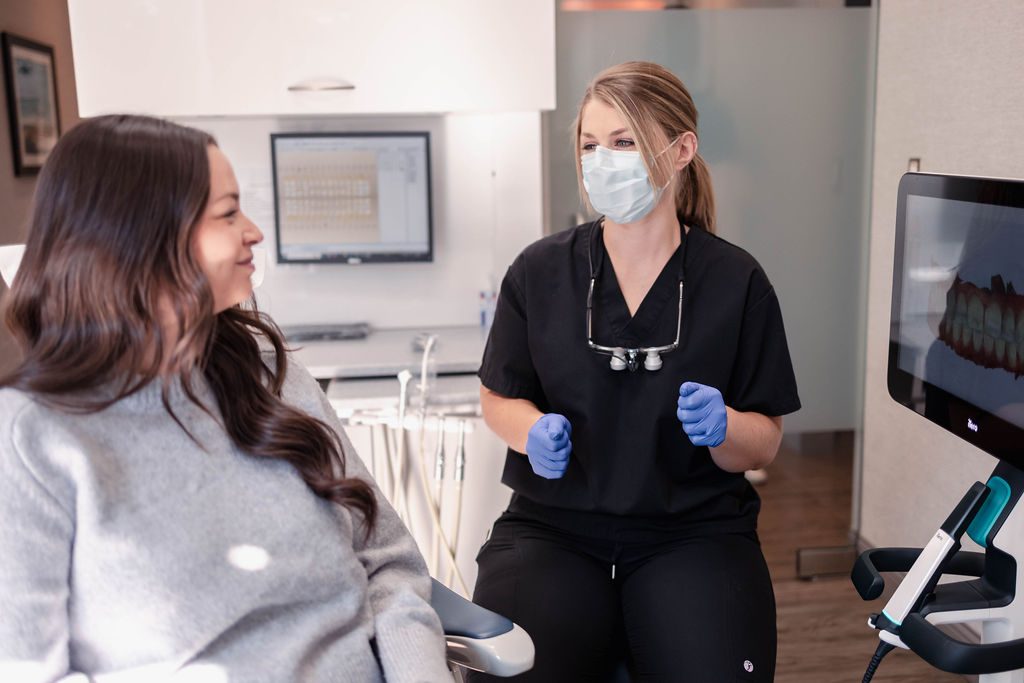
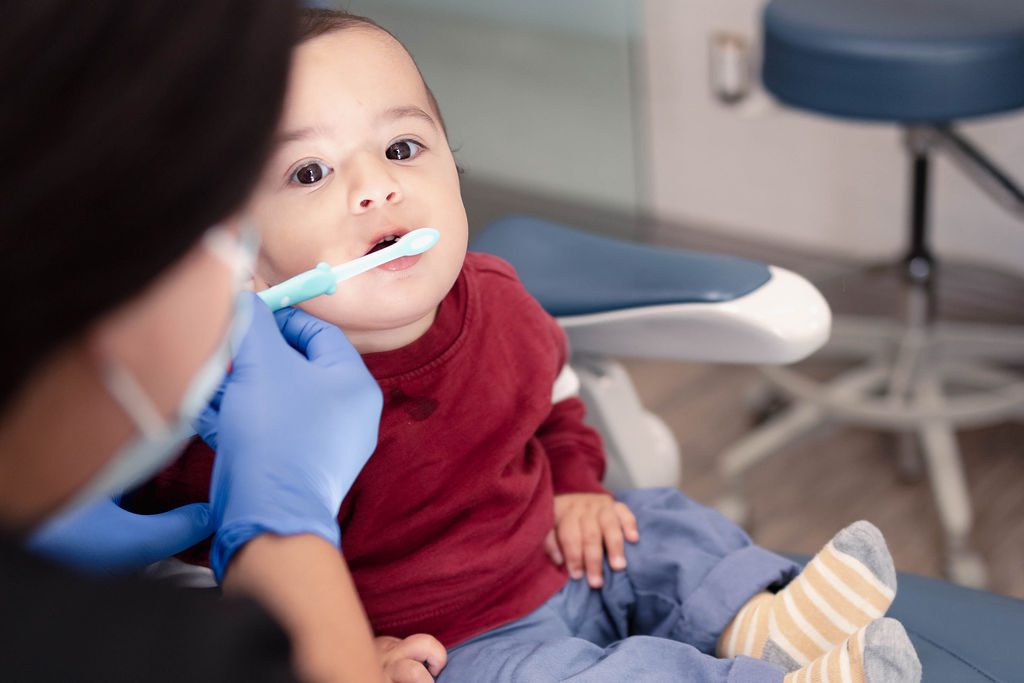
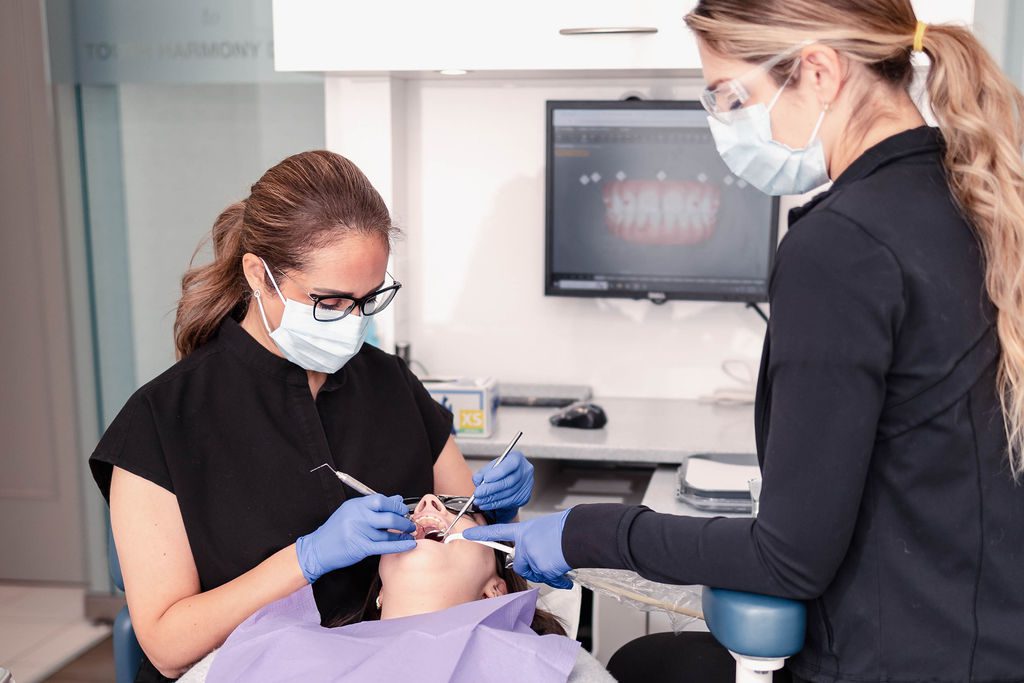
Complete Comprehensive Dental Exams
We understand that visiting the dentist can be a cause for anxiety. That’s why we’ve put together a breakdown of what to expect during a routine dental exam. A dental exam is crucial to your oral health, only your dentist can perform a dental exam.
A standard dental exam consists of your dentist examining your mouth for signs or symptoms that could affect your oral or overall health. A dentist is trained to detect things you may not be able to see on your own. Wondering what we’re looking for? Here are some of the things that we investigate during a dental exam:
- Damaged, missing or decaying teeth
- Early signs of cavities
- Condition of your gums, such as periodontal pockets, inflammation or other signs of gum disease (which can lead to tooth and bone loss)
- Examine how previous dental work such as root canals, fillings and crowns are holding up
- Early signs of mouth or throat cancer, such as white lesions or blocked salivary glands
- Other suspicious growths or cysts
- Position of your teeth (e.g., spacing, bite)
- Signs that you clench or grind your teeth (a treatable problem that can cause headache or sore jaw and can, if serious, lead to hearing loss and tooth loss)
- Signs of bleeding or inflammation on your tongue and on the roof or floor of your mouth
- The overall health and function of your temporomandibular joint (which joins the jaw to skull), checking for signs of disorders that can cause pain or tenderness
- The general condition of the bones in your face, jaw and around your mouth
Scheduling a regular dental exam can prevent more severe problems before you see or even feel them. After the initial inspection, your dentist will perform a visual examination that may include the following:
- A complete medical history so the dentist knows about any health conditions that may affect the success of dental treatments or procedures or that may be associated with oral health problems.
- An examination of your neck area, with the dentist feeling the glands and lymph nodes for possible signs of inflammation that could indicate general health problems; and
- Dental X-rays, if necessary. These can show such problems as cavities under existing fillings, fractures, impacted wisdom teeth, decay under your gum line and bone loss caused by gum disease.
Your dentist will explain what is happening, what they are looking for or what they’ve found during or prior to the examination. Please don’t hesitate to ask any questions. It’s our priority to provide excellent care and that starts with you understanding your oral health.
The more your dentist knows, the more effective they can be at addressing your dental care needs. Be sure to tell your dentist if any of the following pertains to you:
- Any new medical conditions you’ve been diagnosed with since your last visit, such as diabetes or AIDS, even if they don’t seem pertinent. Your dentist needs to know to properly manage your treatment and prevention program.
- Any new medications you’re taking (side effects can often include dry mouth and overgrown gums)
- If you’re pregnant
- If you have any allergies
- Any changes you’ve noticed in your teeth, such as changes in colour, looseness or position
- Any increased sensitivity to heat, cold or sweets
- Whether your floss catches on rough edges, causing it to shred
- Any colour changes in the skin on the inside of your mouth
- If you smoke or chew tobacco (which increases the likelihood of oral cancer)
- If your neck or jaw muscles are tight or if you’re aware of clenching or grinding your teeth
- If you’re nervous about going to the dentist—new ways of doing things have made modern dentistry more comfortable for patients, and talking to your dentist may reassure you and help you feel more relaxed

Emergency & Same Day Appointments
For emergency dental care, we strive to see our patients within 24 hours (within business hours), and the same day if at all possible. New patients are always welcome. The purpose of your visit will be to relieve the discomfort, diagnose the problem and advise you of your options for resolving it. You may need an urgent visit for a dental emergency if you have:
A broken tooth
A broken tooth can cause pain, sensitivity, and should be treated promptly to prevent further damage or infection.
A tooth ache
A toothache is a sign of underlying dental problems and can range from mild discomfort to severe, throbbing pain that requires immediate attention.
A lost crown or filling
A lost crown or filling can expose the tooth to damage and sensitivity, making prompt dental repair essential.
Any pain or infection in your mouth, face or neck area
Any pain or infection in your mouth, face, or neck area may indicate a serious dental or health issue and should be evaluated by a professional as soon as possible.
Any other dental problem or discomfort
Any other dental problem or discomfort should not be ignored, as early treatment can prevent more serious complications.
Digital X-Rays
Digital X-rays are the newest, safest technology for acquiring dental X-rays, using about half the radiation of conventional X-ray taking methods. Images are captured using a flat electronic sensor which relays directly to the computer for immediate review by your dental health care professional.
Laughing Gas Sedation
Nitrous oxide is a safe and effective sedative agent that is mixed with oxygen and inhaled through a small mask that fits over your nose to help you relax during certain procedures. It is not intended to put you to sleep. You will be able to hear and respond to any requests or directions Dr. Wid may have. Dr, Wid will ask you to breathe normally through your nose, and within a few short minutes, you should start to feel the effects of the nitrous oxide. Ultimately, you should feel calm and comfortable. The effects of nitrous oxide wear off soon after the mask is removed.
